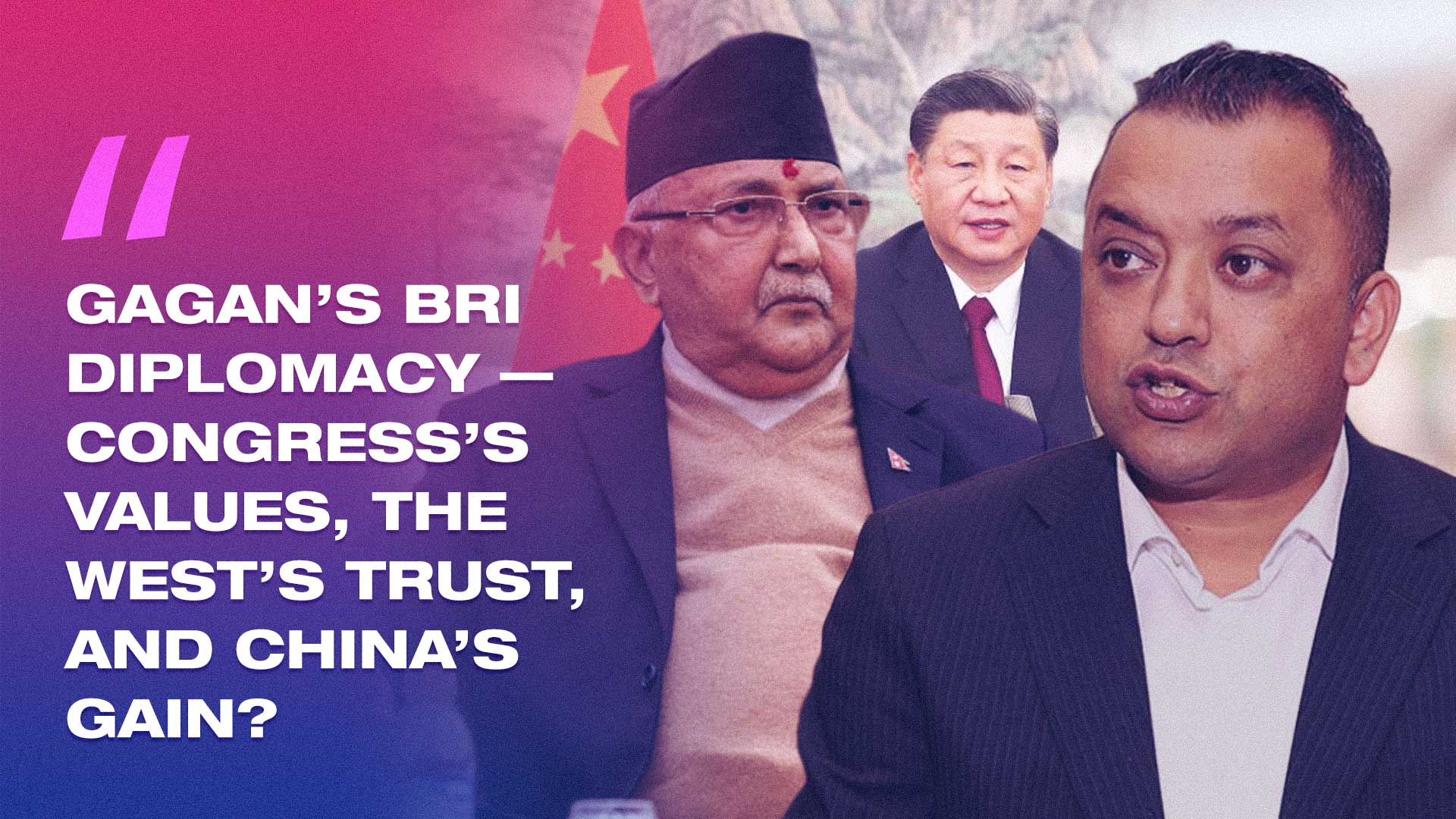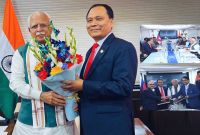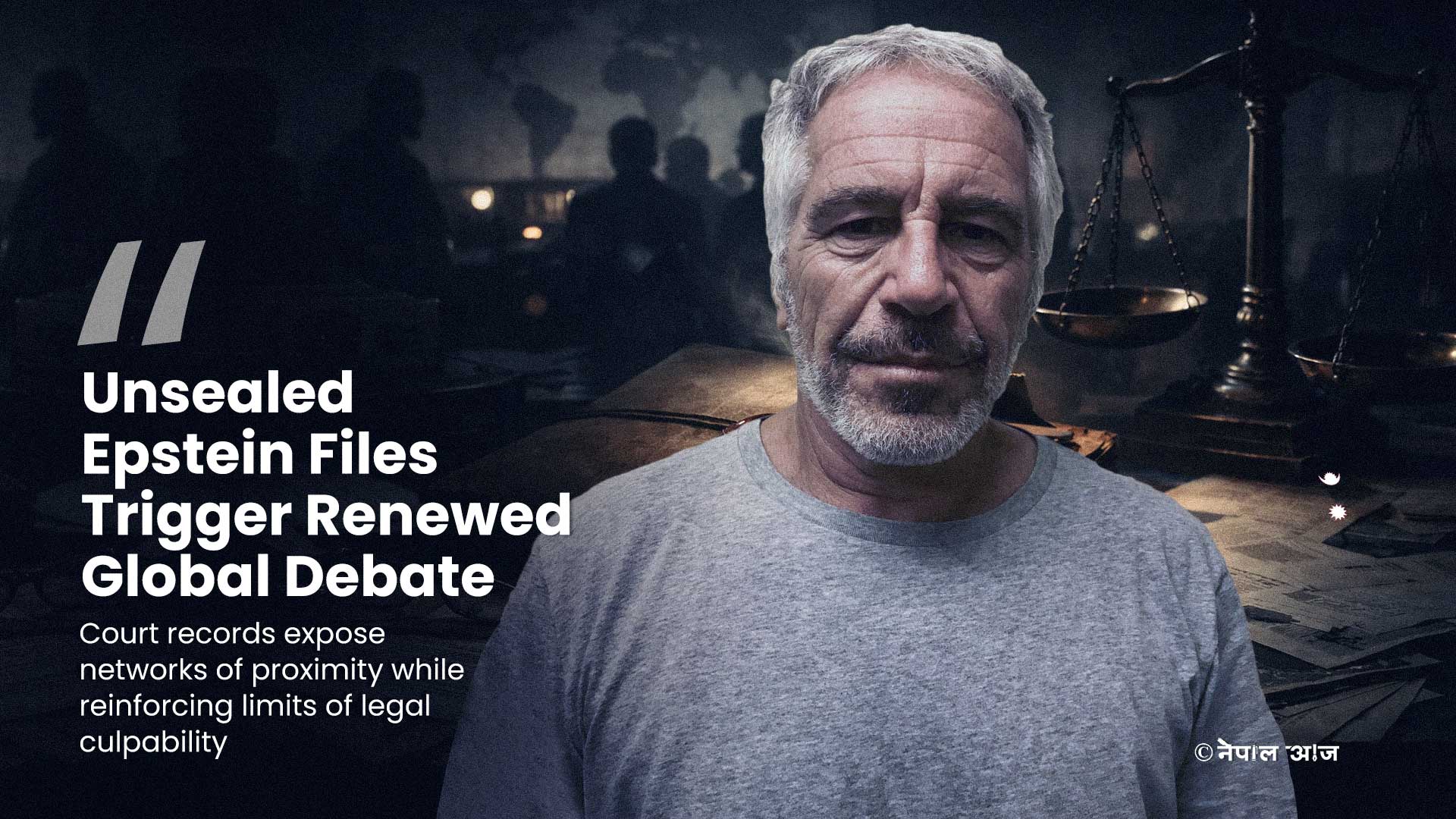When Gagan Thapa Backed Oli on China’s BRI — and Shook Nepal’s Political Faith

On November 22, 2024, then–Prime Minister K.P. Sharma Oli formed a four-member task force to finalize Nepal’s implementation plan for China’s Belt and Road Initiative (BRI). Representing the ruling CPN–UML were Dr. Yubaraj Khatiwada and Bishnu Rimal, while the Nepali Congress was represented by its General Secretary Gagan Kumar Thapa and legal expert Semanta Dahal. From the very day the task force began reviewing and recommending the BRI draft, debate over Nepal’s foreign policy orientation and the Congress Party’s international credibility intensified.
Following the task force’s joint proposal, Nepal and China signed a document titled “Framework for Belt and Road Cooperation” on December 4, 2024. The signing coincided with Prime Minister Oli’s December 2–5 visit to Beijing. During this period, Gagan Thapa publicly stated, “There is no fundamental difference between the Congress and the UML regarding the BRI. Nepal will not join any military alliance but will prioritize grants and technical cooperation for development.”
Thapa’s remarks and involvement quickly sparked controversy within the Congress Party. Senior leaders viewed his actions as a deviation from the party’s long-standing foreign policy values—interpreting it as a sign of strategic bargaining rather than principle-based diplomacy. For a party historically close to Western democratic nations, its decision to align on a shared BRI stance with a communist-led government was seen by many as blurring its “democratic identity.”
Geopolitically, the United States and European nations have regarded the BRI as a tool for China’s strategic expansion. Analysts argue that when the general secretary of Nepal’s leading democratic party collaborates with a communist rival on such a sensitive policy, it sends a clear signal that Nepal is tilting toward Beijing. According to a diplomatic official familiar with the developments, international circles began viewing Nepal with increased “caution” after that episode.
Inside the Congress, divisions became more visible. Some leaders framed Gagan Thapa’s move as an “effort toward national consensus,” while others saw it as a “China-leaning political message.” Senior leader Shekhar Koirala publicly warned, “The Congress must uphold its grant-based development policy. Reliance on debt-driven projects undermines our sovereignty.”
Thapa’s faction rejected the criticism, arguing, “Our engagement sought cooperation in the national interest and long-term development. The dialogue with China should be seen as pragmatic, not political.” Still, this difference in interpretation reinforced perceptions that Congress’s foreign policy had become inconsistent and unclear.
After the signing of the BRI framework, several donor agencies and development partners reportedly adopted a more cautious approach toward Nepal. Foreign policy experts observed that, “For small nations like Nepal, maintaining geopolitical balance is the backbone of national security. Congress’s approach, though well-intentioned, caused a subtle tremor in that balance.”
Today, that 2024 episode remains a defining test of the Congress Party’s foreign policy direction. The cooperation between Gagan Thapa and K.P. Oli, while perhaps a gesture of consensus at the time, has left a long-term mark on Nepal’s diplomatic posture and on the international trust once firmly associated with the country’s oldest democratic party.
Gagan Thapa



![From Kathmandu to the World: How Excel Students Are Winning Big [Admission Open]](https://nepalaaja.com/img/70194/medium/excel-college-info-eng-nep-2342.jpg)


